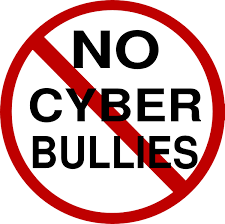You’re navigating the digital world, but the shadow of cyberbullying looms. It’s time to take a stand without succumbing to the bully’s tactics. In this article, you’ll discover effective strategies on how to stop cyber bullying while fostering a positive online environment. From understanding the dynamics to building resilience, you’ll gain the tools to confront these challenges head-on. It’s time to reclaim the digital space and create a culture of respect and empathy.

Understanding Cyberbullying Dynamics
When dealing with cyberbullying, you need to understand the dynamics of how it operates in order to effectively address and prevent it. Cyberbullying often involves repeated harassment, spreading of rumors, or the posting of hurtful comments or images online. The anonymity and distance provided by the internet can embolden bullies, making it easier for them to target their victims. Understanding the power dynamics at play is crucial; bullies may seek to exert control and dominance over their targets, often to compensate for their own insecurities. Additionally, the potential for a large audience to witness the bullying can amplify its impact, causing significant emotional distress to the victim. By comprehending these dynamics, you can develop strategies to counter cyberbullying and create a safer online environment for everyone.
Building Resilience and Support Systems
To effectively build resilience and support systems against cyberbullying, you must prioritize fostering a strong network of trusted individuals who can provide emotional and practical support. Surround yourself with friends, family members, teachers, or colleagues who you can confide in and who can offer guidance during challenging times. Open up to them about your experiences with cyberbullying and seek their advice on how to cope with and address the situation. Additionally, consider joining support groups or online communities where you can connect with others who have gone through similar experiences. Building resilience also involves developing coping strategies such as practicing self-care, engaging in activities that bring you joy, and seeking professional help if needed. Remember that you don’t have to face cyberbullying alone, and having a strong support system can make a significant difference in overcoming these challenges.
Effective Strategies for Responding
Create a clear and assertive response to cyberbullying by documenting the evidence and reporting the behavior to the appropriate authorities. Keep records of the abusive messages, posts, or comments, including dates, times, and screenshots. Refrain from engaging directly with the bully, as it can escalate the situation. Instead, block or unfriend the individual and adjust your privacy settings. Seek support from trusted friends, family, or professionals. Consider reaching out to the platform’s administrators or moderators to report the abusive behavior and request that the content be removed. If the cyberbullying involves threats of violence or illegal activities, report it to law enforcement. Remember that your safety and well-being are the top priority, and taking these steps can help stop cyberbullying without stooping to the bully’s level.
Promoting a Positive Online Culture
Develop a supportive online community by encouraging empathy, respect, and responsible digital citizenship, fostering an environment where cyberbullying is not tolerated. Model positive behavior by engaging in constructive online interactions and addressing others with kindness and understanding. Encourage open communication and active listening, valuing diverse perspectives and experiences. Emphasize the importance of critical thinking and fact-checking to combat the spread of misinformation and harmful content. Promote the use of privacy settings and safe online practices to protect personal information and prevent potential targeting by cyberbullies. Collaborate with educators, parents, and community leaders to implement programs that educate individuals about the impact of cyberbullying and empower them to stand up against it. By promoting a positive online culture, you can contribute to a safer and more respectful digital environment for everyone.
